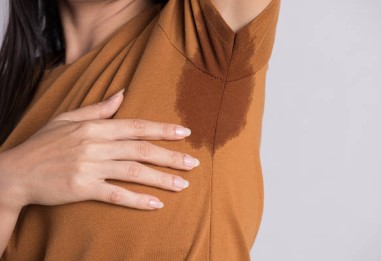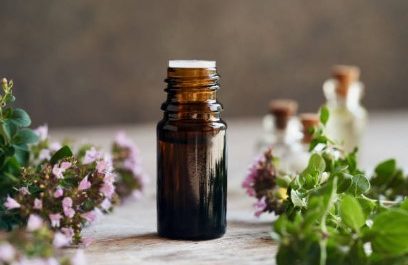A deodorant is a personal care product that is used to control or mask body odor. It is typically applied topically to the underarms, although there are deodorants available for other areas of the body as well. Deodorants work by neutralizing or masking the smell associated with body odor.
Deodorants come in various forms, including solid sticks, roll-ons, sprays, creams, and gels. They usually contain ingredients that target the bacteria that cause odor or mask the odor with fragrances. Common active ingredients in deodorants include alcohol, triclosan, or other antibacterial agents that help eliminate odor-causing bacteria. They may also contain ingredients that help absorb moisture, such as talc or cornstarch, to keep the underarm area dry.
Deodorants are applied to clean, dry skin, typically after showering or bathing. They are meant to provide temporary odor control throughout the day, but they do not usually reduce sweat production. If you’re looking to reduce sweat as well, you may consider using an antiperspirant deodorant combination product, which combines the odor control of a deodorant with the sweat-reducing properties of an antiperspirant.
It’s important to choose a deodorant that suits your personal preferences, skin type, and desired level of odor control. Some deodorants are specifically formulated for sensitive skin or are labeled as natural or aluminum-free. It’s also important to follow the instructions provided by the manufacturer and discontinue use if you experience any irritation or allergic reactions.
If you have specific concerns or questions about choosing or using a deodorant, it’s best to consult with a healthcare professional or dermatologist for personalized advice.
How to get rid of Body Odor without Deodorant
If you prefer to avoid using deodorant or are looking for alternative ways to manage body odor, here are some natural methods to help reduce and control body odor:
Good hygiene practices
Maintaining proper hygiene is crucial in managing body odor. Take daily showers or baths using a mild antibacterial soap to cleanse your body, paying special attention to areas prone to sweating, such as the underarms, groin, and feet. Make sure to thoroughly dry your skin afterward to prevent the growth of odor-causing bacteria.
Use antibacterial soap
Consider using an antibacterial soap or body wash that contains ingredients like tea tree oil or eucalyptus oil. These natural antibacterial agents can help eliminate odor-causing bacteria on the skin.
Wear breathable clothing
Choose loose-fitting clothes made from natural fibers like cotton, linen, or bamboo. These fabrics allow better air circulation, reducing sweat and odor buildup. Avoid synthetic materials that trap moisture and contribute to bacterial growth.
Change clothes frequently
If you tend to sweat a lot or have particularly active days, change your clothes more often to prevent odor-causing bacteria from multiplying.
Wash clothes properly
Make sure to wash your clothes regularly, especially those that come into direct contact with areas prone to sweating. Use a good-quality laundry detergent and follow the care instructions on clothing labels.
Use baking soda
Baking soda can help neutralize odors. You can mix a small amount of baking soda with water to create a paste and apply it to your underarms. Let it sit for a few minutes, then rinse off and pat dry.
Practice hair removal
Underarm hair can trap sweat and bacteria, contributing to body odor. Consider shaving, waxing, or using other hair removal methods to keep the underarm area clean and reduce odor.
Watch your diet
Certain foods can affect body odor. Avoid or limit the consumption of strong-smelling foods like garlic, onions, spicy foods, and processed foods. Instead, incorporate more fresh fruits, vegetables, whole grains, and lean proteins into your diet.
Stay hydrated
Drinking plenty of water helps flush out toxins from your body and can help reduce body odor. Aim to drink at least 8 glasses of water per day.
Manage stress
Stress and anxiety can contribute to increased sweating and body odor. Practice stress-management techniques such as exercise, meditation, deep breathing exercises, or engaging in activities that help you relax and unwind.
It’s important to note that these methods may vary in effectiveness from person to person, and individual body chemistry plays a role in body odor. If you have persistent or severe body odor that does not improve with these natural methods, it’s advisable to consult with a healthcare professional or dermatologist for further evaluation and personalized recommendations.







